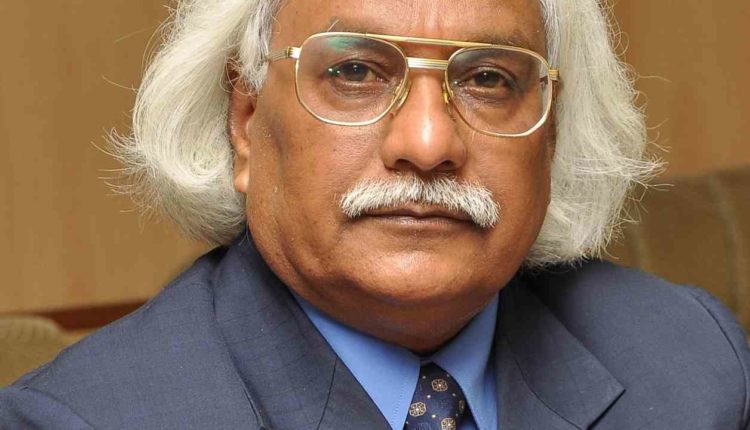Redefining Education and Governance in COVID Times and Beyond- Kulpati Prof PB Sharma
In education right from schools to colleges and universities, let digital learning be effectively blended in the learning systems.
NEW DELHI: The power of digital learning is immense and it had the infinite potential to significantly enhance both the access as well as quality and relevance of education at all levels from School to Universities. Further, the use of digital learning is easy and least expensive as is evident from the ease with which the online classes have been conducted by teachers in India, whether at school or college or at a university level.
India with its connectivity deeply penetrating in urban as well as rural areas has a great opportunity to address the long-pending demand for improving quality as well as the relevance of education and giving a major boost to human excellence, says Prof PB Sharma, Vice-Chancellor Amity University Gurugram who has also been the Founder Vice-Chancellor Delhi Technological University DTU.
My own experience of over half a century in higher education convinces me that India, with its 666 million people below the age of 25 years, is sitting on a gold mine of opportunity to reap a rich harvest from Digital Learning that will also support rapid Digital Transformation in a country of 1.35 billion people governed by a structured democracy having 72 years of standing.
 Let us look at why and how to go about causing this digital transformation in education and in governance in India.
Let us look at why and how to go about causing this digital transformation in education and in governance in India.
In education right from schools to colleges and universities, let digital learning be effectively blended in the learning systems. The teachers are to be motivated to use validated digital learning platforms for delivering their lectures that should be carefully prepared to cause enhanced learning both within as well as outside the class. All that is taught be uploaded on the digital learning portals and the students be encouraged to engage in developing problem-solving capabilities including those based on analysis and design.
Sensitizing students to real problems of the society and Industry should form an integral part of education. This can best be done in a blended mode of video-based presentations and field visits. This applies to both schools as well as higher education. During my days at IIT Delhi, I had found that taking the students for field visits to see a power plant or an industry and sensitizing them with the problems and challenges there was greatly appreciated by the students as they could connect their classroom teaching of engineering to the real world of engineering.
Today, with the help of digital technology we could provide the feel of the real-life to a great extent with the pre-recorded videos that could be integrated into the teaching-learning environment in the institutions at all levels.
Digital Learning also facilitates collaborative learning in small groups that may or may not be present in the same class physically but could be remotely connected in a seamless environment of learning. We need to promote collaborative learning necessary to develop the vital team spirit with which the workforce of tomorrow would be required to work in industries of the future.
Collaborative learning also requires a sea change in the minds of teachers. Today it is absolutely necessary that teachers allow students to teach in the class. Or to put it simply that we are in an age in which teachers must learn from students, students must learn of teachers and students must learn from students. The age of learning from each other has arrived. I often consult my grandsons Aadish and Sanskrit especially in matters of use of modern digital technologies. They inform me that they learn a lot by their own efforts as the modern technologies facilitate self-learning and that too with speed and ease. Young India is naturally more excited and keen to use digital technology and that is a great sign of strength for young India, that is the future.
 There is thus an urgent need to create a new normal for education as we have to live with COVID kind of virus threats in the future too. In this new normal we may promote both the modes of education purely online as well as blended online and classroom teaching. The idea should be to make the best of the teachers available to a great many students, in a great many places and to a great many institutions. Those highly experienced but are currently sitting at home due to superannuation from reputed institutions could be attracted to teach online from home to a great many students and in a great many institutions. Their teaching could be effectively integrated into the structured delivery of curriculum in schools and colleges/ universities. I see a great future for teaching from home but with effectively utilizing digital technologies to enhance the joy of learning.
There is thus an urgent need to create a new normal for education as we have to live with COVID kind of virus threats in the future too. In this new normal we may promote both the modes of education purely online as well as blended online and classroom teaching. The idea should be to make the best of the teachers available to a great many students, in a great many places and to a great many institutions. Those highly experienced but are currently sitting at home due to superannuation from reputed institutions could be attracted to teach online from home to a great many students and in a great many institutions. Their teaching could be effectively integrated into the structured delivery of curriculum in schools and colleges/ universities. I see a great future for teaching from home but with effectively utilizing digital technologies to enhance the joy of learning.
The focus of teaching, should in my view, shift to enhancing the learning and learnability of the students. The workforce of tomorrow would be required to assimilate the latest knowledge as well as contemporary and future skills much by their own efforts of self-learning. Lifelong learning would become more important as we penetrate deep into tomorrow’s innovation-centric, technology-savvy industries and enterprises based industrial development.
Another great opportunity that is knocking our doorstep is to take digital technologies to rural India where 65 to 70 percent of Indian population lives. Here we have a great opportunity to offer quality education and skill development using modern digital technology platforms. Rural IT and AI integrated technology-empowered learning could transform rural India into a highly productive society that shall make a formidable contribution to the nation’s economy. The dream of strengthening the bottom of the pyramid would then be realized as part of the New India Vision. The Government India should without losing time coin a set of policies and incentives for IT and ITES industries to move to rural India so that education and employment could go together to rural areas now that the call for Aatmanirbhar Bharat has been given by the Government as a policy thrust of nation’s development.
As far as governance, the digital transformation shall achieve the long-desired goal of good governance. It goes without saying that technology creates transparency, technology and transparency together to create trust and transparency and trust together create honesty and impacts the behavior of people both in power and also those who are served.
So here is a winning strategy for a country that is looking for major breakthroughs to significantly enhance transparency, honesty and to effectively kill the virus of corruption in Indian society.
In a democracy, the Government of the People should necessarily be seen as Government for the People. The digital transformation shall bring about a sea change in governance in the world’s largest democracy and shall create a New India of law-abiding citizenship and responsible government both in the public and private sectors, says Kulpati Prof PB Sharma who is also the Past President of Association of Indian Universities, AIU.




Informative & thoughtful.